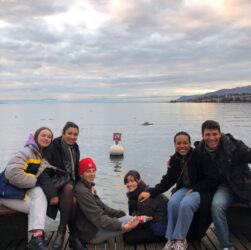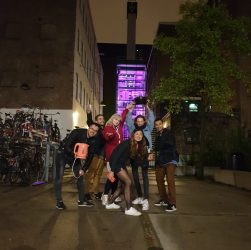Mvelo Nzimande LLB Student Semester Exchange in the Second Semester, 2022 at Bern University Pre-departure: I decided that I …


Mvelo Nzimande LLB Student Semester Exchange in the Second Semester, 2022 at Bern University Pre-departure: I decided that I …

Pre departure: Initially, I wasn’t convinced I would be going to Amsterdam, the Netherlands to study towards an LLM (Master’s …